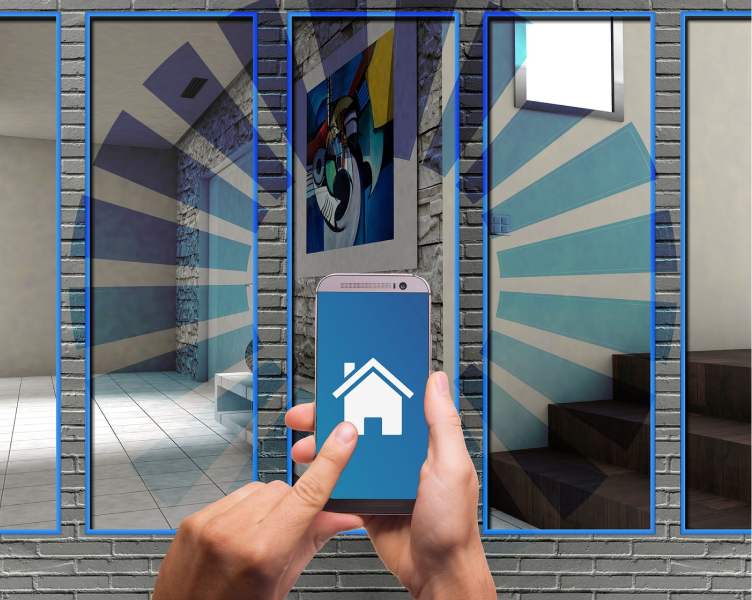Are you in the midst of setting up your smart home and feeling overwhelmed by the multitude of options available for home automation? Look no further as we dive into the fascinating world of Zigbee and Z-Wave controller. These two wireless communication protocols have gained significant popularity for their ability to connect and control various smart devices in your home. But how do you choose between them? Which one is the right fit for your specific needs? In this blog post, we will explore the similarities, differences, and key considerations to help you make an informed decision. So, let's embark on a journey to unravel the secrets of Zigbee and Z-Wave controllers, and discover the ideal choice for your smart home ecosystem.
- What is Z-Wave Controller?
- What is Zigbee Controller?
- Exploring Use Case of Z-Wave and Zigbee Smart Hub
- How to Choose the Right Controller - Factors to Consider
What is Z-Wave Controller?
A Z-Wave controller hub is a key component in a Z-Wave network, a wireless communication protocol specifically designed for home automation. It serves as your smart home system's central hub or brain, allowing you to connect, monitor, and control a wide range of Z-Wave compatible devices.
Think of the Z-Wave controller as an orchestra conductor, coordinating and harmonizing the actions of your smart devices, such as lights, thermostats, door locks, sensors, and more. It acts as a bridge between these devices, enabling seamless communication and interaction.
What is Zigbee Controller?
A Zigbee controller is a central component of a Zigbee network, which is a wireless communication protocol specifically designed for home automation and Internet of Things (IoT) applications. The Zigbee controller serves as the core hub or coordinator of your smart home system, facilitating the connection and control of various Zigbee-enabled devices.
Exploring Use Case of Z-Wave and Zigbee Smart Hub
Here is a list of use cases of Z-Wave and Zigbee Smart Hubs with real-life examples:
Z-Wave Smart Hub:
|
Use Cases |
Key Features |
Example |
|
Seamless Device Integration |
Connect and control various Z-Wave compatible devices |
Smart lights from different manufacturers, thermostats, motorized shades, door locks, motion sensors |
|
Remote Access and Control |
Control devices remotely via smartphone app or web portal |
Adjusting thermostat settings while away from home, turning on/off lights from a different location |
|
Customizable Automation |
Create customized automation routines and schedules |
Automatically turning off lights and locking doors when leaving the house, scheduling temperature adjustments based on occupancy |
|
Energy Management |
Optimize energy usage and monitor device energy consumption |
Setting schedules for temperature adjustments, receiving energy consumption reports for connected devices |
Zigbee Smart Hub:
|
Use Cases |
Key Features |
Example |
|
Extensive Device Compatibility |
Broad compatibility with Zigbee-certified smart devices |
Zigbee smart bulbs from different manufacturers, smart switches, sensors for temperature, humidity, and occupancy |
|
Interoperability and Intercommunication |
Enable devices to collaborate and interact based on triggers or events |
Motion sensor triggers lights to turn on and adjusts smart thermostat accordingly, door sensor triggers security camera recording |
|
Scalability and Mesh Networking |
Highly scalable for large networks with extended coverage |
Expanding Zigbee network with additional devices across multiple floors, ensuring connectivity in large homes or buildings |
|
Enhanced Security |
Strong emphasis on security and privacy |
Secure communication between Zigbee devices with encrypted data transmission, secure pairing of devices using unique keys |
These updated tables provide broader and more detailed examples for each category, showcasing the versatility and capabilities of both Z-Wave and Zigbee smart hubs.
How to Choose the Right Controller - Factors to Consider
Don’t just buy a smart home controller you found on the internet. Attractive marketing can fool you into buying controllers that won’t fulfill any of the operations you desire.
You must consider several factors when choosing a controller. Here are key factors you should consider:
Device Compatibility
Check if the controller supports the devices you already own or plan to integrate into your smart home. Verify if the controller is compatible with the communication protocol (e.g., Z-Wave, Zigbee, Bluetooth, or Wifi) used by your devices. If you’re looking for a controller that offers limitless opportunities in terms of compatibility, EVVR Center Lite should definitely be a quality controller you can rely on. It’s a Zigbee-enabled device and would support all the devices using this protocol for an efficient smart home experience.
Number of Devices You Want to Pair
Consider the scalability of the controller and the network it supports. Determine if it can handle the number of devices you intend to connect now and in the future, especially if you plan to expand your smart home ecosystem. Thanks to EVVR Center Lite’s unbelievable compatibility you can pair as many devices as you want, giving you a complete home automation experience.
User Interface
Evaluate the user interface provided by the controller. Check if it offers an intuitive and user-friendly interface, whether through a smartphone app, web portal, or dedicated control panel. Ensure that the interface aligns with your preferences and provides the necessary functionalities for managing your smart home.
One good thing about using EVVR Center Lite is that you get outstanding controllability with the EVVR App. With its easy-to-use interface, you can instantly get things done using the EVVR App commands.
Automation Capabilities
Assess the automation features and customization options offered by the controller. Look for the ability to create schedules, set up routines, and trigger actions based on specific events or conditions. Consider if the controller supports advanced automation scenarios, such as conditional triggers and interactions between devices.
The EVVR Center Lite offers automation features and customization options. It allows users to create schedules, set up routines, and trigger actions based on specific events or conditions. It also supports advanced automation scenarios, such as conditional triggers and device interactions.
Remote Access
Determine if the controller allows remote access and control of your smart devices. Check if it offers a mobile app or web portal that enables you to monitor and manage your smart home system when you are away from home.
The EVVR Center Lite offers automation features and customization options. It allows users to create schedules, set up routines, and trigger actions based on specific events or conditions on EVVR Console. It also supports advanced automation scenarios, such as conditional triggers and device interactions.

Integration with Voice Assistants
If you use voice assistants like Amazon Alexa or Google Assistant, verify if the controller is compatible and supports integration with these platforms. This allows you to control your smart home devices using voice commands.
Thanks to groundbreaking engineering, EVVR Center Lite is also compatible with popular voice assistants like Amazon Alexa and Google Assistant. It allows users to integrate their smart home devices with these platforms and control them using voice commands.
Security and Privacy
Consider the security measures implemented by the controller. Look for features such as strong encryption, secure authentication, and regular firmware updates to protect your smart home system and data.
EVVR prioritizes security and privacy by offering enterprise-class data encryption. It ensures that user data is processed and stored locally in real-time, rather than in the cloud. This approach enhances privacy and smart home security.
Budget
Evaluate the cost of the controller and any associated fees, such as subscription plans or additional device compatibility fees. Consider the value the controller provides in relation to its price and your budget.
Brand Ecosystem
Consider whether you already have smart devices from a specific brand or ecosystem. Some controllers are designed to work seamlessly with devices from the same brand or ecosystem, offering better integration and compatibility.
User Reviews and Recommendations
Research user reviews, ratings, and recommendations for the controllers you are considering. Learning from the experiences of others can provide valuable insights and help you make an informed decision.
By considering these factors, you can select a controller that meets your specific requirements, integrates well with your existing devices, and provides the desired functionality for your smart home setup.
Final Thoughts
In conclusion, when choosing between a Zigbee controller and a Z-Wave controller for your smart home automation needs, it's essential to consider several factors. Both protocols offer their advantages and compatibility with a wide range of devices.
If you are considering a Zigbee or Z-Wave controller, the EVVR Center Lite controller stands out as a reliable and versatile option. Its extensive compatibility, robust automation features, and emphasis on security, and privacy make it a compelling choice for smart home enthusiasts.
For more information on how the EVVR can enhance your smart home experience, feel free to contact us. We are here to assist you in finding the perfect solution for your unique needs and requirements.












